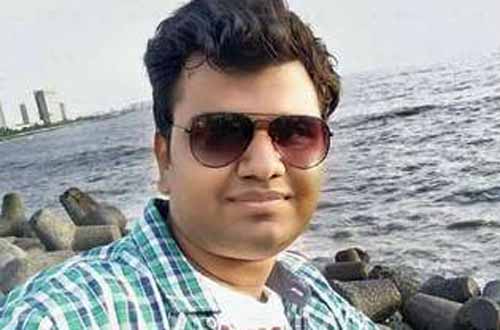THE HANS INDIA | May 18,2018 , 06:09 AM IST
Education is preparation for life and it should nurture personal excellence among learners who in turn contribute to social and national progress.
But this qualitative vision is missing altogether in our education system. The recent remarks of the Union HRD Minister at an event in Madhya Pradesh confirm this fact. He expressed that there was a need to reform our education system. He said that our curriculum was devoid of values, creativity, life skills and physical education.
Educationists, teachers, parents and thinkers are much worried about the painful outcomes of today's education. Many of today's social ills are the results of our ineffective system of education.
A trainee Assistant Superintendent of Police was caught red-handed in Chennai, six months ago, while cheating in a UPSC examination using concealed electronic devices. A 17-year old Intermediate student went missing from her junior college in Hyderabad in October last year.
She left a letter behind in which she alleged that the management of the college was killing students to read all the time and asked her parents to help the other students by closing the college.
A student studying in class 12 in Haryana gunned down his school's principal inside her office with a revolver in January this year because the principal warned him for his low attendance. A third-year student of Ph.D. committed suicide in the IIT Kanpur a month ago owing to severe stress. In February this year a student studying in class seven in Gurgaon, putting a post in Facebook, threatened to rape one of his teachers and her minor daughter.
These are just a few examples that reflect the poor face value of our present education. Lack of vision and basic amenities, inapt information, verbose teaching, marks-oriented evaluation, and rules without humane concern have made our teaching-learning process a dry activity. The Ministry of HRD, on its invitation, received 34,000 suggestions from citizens to overhaul our education.
The citizens' response represents the people's eagerness for immediate result-oriented interventions in the system. Since the hurdles are deep rooted in different dimensions, the required reformation is possible only with true commitment and the Himalayan patience of all the concerned.
The central government conducted a national survey last year to assess the learning efficiency and general awareness of students studying in the 3rd, 5th and 8th grades. 1200 observers assessed 2.5 million students.
The observers were aghast at the findings. Many students failed to show even the minimum awareness in mother tongue, Mathematics, Social Studies, Science and Environmental Studies. They did not know the 1857 battle. They couldn't recognize time in clocks. They could not answer the questions pertaining to relations and their names. More surprisingly they had no awareness about the number of players in games like volleyball and chess!
Than being need-based, our curriculum is rather information-oriented. The HRD Minister himselfagreed that the NCERT school syllabus was more than that of B.A. and B.Com courses and there was a need to reduce it to half. Factors like interest, home environment, health, learning ambience, practical orientation, motivation that influence students' learning are not given adequate importance in the designing of the curriculum.
Difference in syllabi and publications is not paving a way for uniformity and integrity in students' learning. Languages are taught only as a part of the syllabus. The fact that language is a tool of personal excellence, cultural progress and influential leadership is totally being ignored. In the southern States, for example, Hindi, at the school level, is taught for the sake of marks and certification.
That is why students just ignore it after class 10 and they face many hurdles once they enter into their career leaving their State. English is another episode of nation-wide pain. Finally our students are branded as poor communicators. Our curriculum has little life. It is producing strife!
The learning ambience is terribly gloomy in many institutions. Students have no classrooms and desks to sit. Majority of the schools are lacking in basic amenities. They have no boundary walls and play grounds. Toilets also are greedy expectations in them.
No nation develops beyond wisdom of its teachers. The teaching profession, which was accorded a lofty place in the past, is considered today as the last option of those who have lost all other career opportunities.
Many teachers are working with de-motivated mood on account of several factors like contractual recruitment, deployment for non-academic activities, poor career prospects and so on. Technology is little made use of in classrooms. The outdated teaching methodology is not able to breathe life into teachers' explanations. Teachers are not empowered with qualitative training.
The wisdom of apex research organizations like NCERT is confined just to their premises and their fragrance is nowhere seen outside. In this context teachers' performance in their professional tasks is feeble. In the recent times certain unethical practices of some teachers all over the country are posing a threat to the dignity of the profession.
Our examinations are nightmares to students. They have become synonymous with terrorizing enemies. Certain of our examination rules are so inhuman that students are doubted as criminals. Girls are being asked to remove their innerwear in public at the venues of examination.
The examination authorities are following paper rules without reasoning. They are aggressive and dominant towards innocent students and the real culprits are out of their sight! In some States, students are not allowed, during board examinations, to write the test if they arrive late at the Centre even by one minute!
It is apt here to see how negligent our evaluation system is. National Institute of Open Schooling (NIOS) is a top organization that runs with the slogan of quality and holistic education.
A parent with great trust in the distance learning admitted his child to the Senior Secondary programme in NIOS. The student, out of her personal interest, opted for 2 extra subjects besides the prescribed ones. Appearing at the 2016 examinations she received the memo with fail marks in one subject.
Considering the daughter's confidence and following the officially permitted procedures the father got photocopy of her evaluated answer sheets and was shocked after seeing the evaluator's injustice. He found negligent cross lines even against the correct answers.
A one-mark question asked for the famous temple in Puri. The evaluator put a cross against the answer and awarded no mark at all though the student wrote 'Jagannath Temple'. The father applied for re-evaluation and took the issue to the NIOS Headquarters at Delhi.
The student one day received a letter saying that there was 'no change in marks'. Surprisingly, just after two days, the student received another letter that said 'change in marks'. The student was given just pass marks in the subject. How faithful is our evaluation system? This tendency is suppressing creativity of young minds. Burdensome studies and faulty examination methods are causing seasonal deaths of students every year!
With 27% of illiteracy and 55% of the population being dependent on agriculture in our country, we hardly find awareness among parents about significance of education. Fun and Entertainment oriented technology and freedom beyond control are making our students lazy slaves deprived of self-control and vigilant behaviour.
We need commitment of the governments in the very first place for reformation. Allocation of adequate funds and provision of basic necessities in all institutions must be the next initiative. We need common curriculum all over the country to ensure integrity in learning. It must be translated into the respective regional languages also. Let the syllabus include mother tongue, Hindi and English up to graduation.
Health care, gender equality, human rights, constitutional and legal provisions must be incorporated in the syllabus. Permanent Guidance and Counselling service in every institution, with facilities of aptitude assessment right from upper primary level, is the need of the hour. Since Internet has come into access educational technology must be brought into practice to enrich the teaching-learning process.
Teachers' proficiency should be strengthened with periodical training inputs. There need not be any written examinations during the primary education level. But there must be activity-based projects for assessment. From the high school level not only written tests there must also be social awareness projects and personality tests in the evaluation process.
All this will lead to confidence in the system without thoughts of self-destruction. Teachers' voice should represent our collective developmental choice. Students are our precious property. Let us save them. Institutions are sacred abodes. Education is our lighthouse. Let us breathe life into them with attention!
By Vangeepuram Srinivasa Chary (The writer is the CEO of AARAA Poll Strategies Pvt. Ltd., Hyderabad.)
 Representative Image
Representative Image










